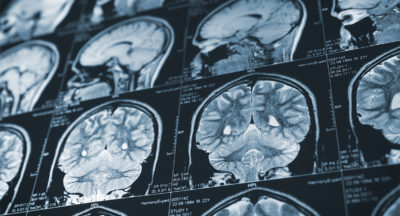
The Importance of IEP and 504 Plans in Special Education
Individualized Education Plans (IEPs) and 504 Plans are legal documents that are designed to ensure that students with disabilities receive the necessary accommodations and support to succeed in their education. These plans provide a framework for meeting the unique needs of each student and outline specific goals, accommodations, and services that must be provided to support their learning. At Cognitive Solutions L.C., a Chicago based clinic that specializes in providing support to students with special education needs, we believe that IEPs and 504 Plans are critical for ensuring that students with
disabilities receive the education they deserve.
What is an IEP?
An IEP is a legal document that is designed for students who have been identified as having a disability that impacts their ability to learn. The plan outlines the student’s strengths and needs, as well as specific goals and objectives that are designed to meet those needs. The IEP also includes a list of accommodations and services that will be provided to support the student’s learning. These accommodations may include extended time on tests, preferential seating, access to assistive technology, or additional support from a teacher or specialist.
The IEP is developed through a team process that includes the student, the student’s parents or guardians, teachers, school administrators, and any other professionals who are involved in the student’s education. The team works together to identify the student’s needs, develop specific goals and objectives, and identify the accommodations and services that will be provided to support the student’s learning.
What is a 504 Plan?
A 504 Plan is a legal document that is designed for students who have a disability that limits a major life activity such as learning, walking, seeing, or emotional regulation. The plan outlines the accommodations and modifications that will be provided to support the student’s access to education. These accommodations may include preferential seating, access to assistive technology, or additional support from a teacher or specialist.
Like the IEP, the 504 Plan is developed through a team process that includes the student, the student’s parents or guardians, teachers, school administrators, and any other professionals who are involved in the student’s education. The team works together to identify the student’s needs, develop specific accommodations, and ensure that the student is able to access the education they need.
Why are IEPs and 504 Plans Important?
IEPs and 504 Plans are important because they provide a legal framework for meeting the unique needs of each student with a disability. These plans ensure that students receive the necessary accommodations and support to succeed in their education. Without these plans, students with disabilities may struggle to access the education they need, which can have long-term consequences for their academic and professional success.
Additionally, IEPs and 504 Plans provide parents and guardians with a mechanism for advocating for their child’s needs. These plans ensure that the student’s strengths and needs are recognized, and that the school is held accountable for providing the necessary accommodations and support.
The Importance of Hiring a Consultant
If you are having difficulty with the process of developing an IEP or 504 Plan, it may be beneficial to hire a consultant. At Cognitive Solutions L.C., we have a team of consultants who have extensive experience working with families and schools to develop and implement these plans. Our consultants can help you understand the process, advocate for your child’s needs, and ensure that the resulting plan meets their unique needs.
Related Posts
Why an Executive Functions Coaching Important for Students Going Back to School
As kids return to school, they face an array of academic and social challenges...
Flying Under the Radar: How Unrecognized Traumatic Brain Injury Can Lead to Loss of Life
The time is now to discuss your health and here’s why. - In addition to...
Neurofeedback for ADHD
Neurofeedback: A Form of Biofeedback Neurofeedback is known by several names,...
Getting Proper Support for Children in Special Education — Why is it Challenging?
Parents of children with special education needs face a unique set of challenges...





